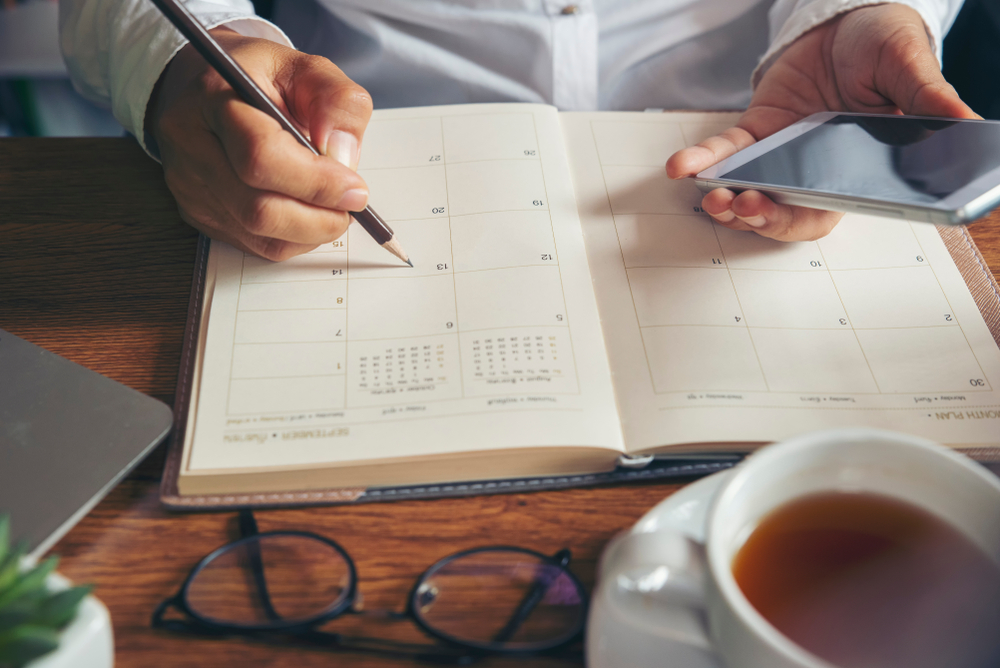Working from home is drawing to a close for many of us as we head back to the workplace, but what if the mere thought of it is causing sleepless nights?
Editor Jane Garton shares her top tips for how to pave the way for the big return.
As September starts many of us are thinking of going back to the office or indeed being asked by employers to return to our desks. Maybe you can’t wait for the big return but what if the mere mention of the workplace fills you with dread?
Fear of getting ill, using public transport, and putting childcare in place are just some of things you may be concerned about. However, if you are starting to snap at your family or housemates, finding it hard to focus and your productivity levels have dropped, or if you are beginning to feel bored and unmotivated, you may well benefit from life back in the office.
Still feel uneasy about making the transition? Here are some tips to help you adapt to the new normal in the workplace.
Plan your routine

Start by reintroducing as many aspects of office routine as you can while still at home. Get back into pre-lockdown habits of waking up, dressing in work clothes, eating breakfast and getting outside at set times of the day.
Create a definite break between work and leisure time by going out for a walk at the start and end of what will be your working day back in the office.
Be open with your boss. If you are still trying to work out childcare arrangements or need to be at home for other reasons, ask about the possibility of working flexible hours.
Manage your mood

When you do go back pay attention to your anxiety levels. If things start to overwhelm you talk to someone about it – be it your boss, a colleague or HR department. And if things start to really get you down consider seeking help from a coach or therapist.
Take things one step at a time. How we work is probably going to keep changing in the months to come so don’t expect everything to return to normal immediately. Take each day and week at a time. It may take a few days to get back into a routine which can be tiring. So, take regular breaks throughout the day – it’s a great way to distress and refocus. Walk round the office, have a chat with colleagues and make sure you take your lunch hour.
Finally, don’t forget plenty of sleep and ‘me time’ can do wonders for your mental health. Try not to bring your work home with you and if possible book some time off before Christmas.
Travelling

Building in coping strategies can help to make the transition easier. For example, you might like to consider investing in headphones for the commute. Listening to your favourite podcast or playlist can provide a welcome distraction.
Meeting up with a colleague with whom you can walk through the door on your first day back may help too. Also avoid saying yes to meetings that start immediately after you arrive at work. Allow yourself ample time to wash and sanitise hands after your journey and settle into your day.
Consider others

Maybe some of your colleagues have been working alone at home and have got out of the habit of social interaction so don’t be too harsh on them if their behaviour starts to irritate you.
Respect other people’s boundaries around things like handshaking, wearing masks, keeping a distance or not wanting to join in social events or in-person meetings.
Supportive supplements
There are several natural herbal medicines that can help with mood, sleep and concentration:
Siberian Ginseng
Siberian ginseng belongs to a group of herbs known as adaptogens that are thought to help the body cope with stress. This can include physical exertion, sleep deprivation, infections or illness, and psychological stress.
Rhodiola
Rhodiola rosea can help common symptoms of stress such as poor concentration, lack of motivation, sleeplessness and low mood.
Valerian
Valerian belongs to a group of herbs known as relaxants and does just as its name implies. It helps relaxation.
Passionflower
Passionflower has long been valued for its calming, sedative properties and is especially good for taking the edge off anxiety and worry, as well as helping stress symptoms such as a racing heart. It is often combined with valerian, which is worth considering if work worries are keeping you awake at night.

























Add comment